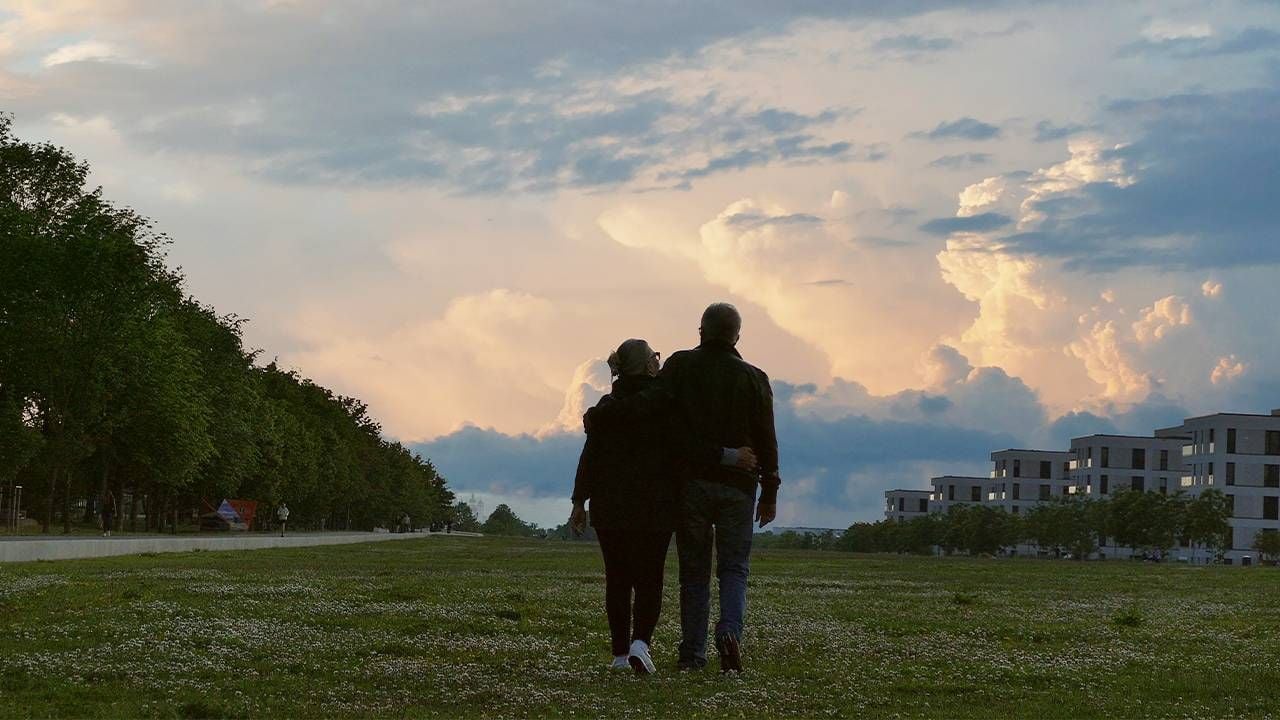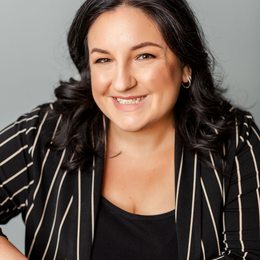When Father's Day is Complicated
Father’s Day isn’t always a joyous occasion. Here are expert tips on how to cope.
Walk into any store with a greeting card section this time of year and you'll see the shelves lined with Father's Day cards, gift cards and merchandise. While many may flock to find just the right card that conveys all the good feelings for the father figures in their lives, others may steer clear for a variety of reasons.

The death of a father, a history of his abuse or neglect, caregiving issues: there are many reasons that someone's feelings around Father's Day can be complicated.
When Father's Day is a Painful Reminder
Many times, issues with fathers (or those who were in that role) begin in childhood. Dr. Pedro R. Choca is a licensed clinical psychologist and independent substance abuse counselor with over 40 years of experience. He founded and supervises the Behavioral Medicine Department at HonorHealth, a nonprofit health system in Arizona.
"We all turned out bruised, scarred, and with lifelong physical and emotional health problems."
"Fathers are extremely important in the growth and development of children," Choca explains. "They are instrumental in the development of self-esteem and self-confidence. They affect a child's attitudes about sexuality, masculinity and personal identity. They inspire the children in their personal and professional achievement. Finally, they serve as a catalyst in the development of values and beliefs."
Judy, 71, (who asked not to use her last name due to the sensitive nature of the topic), says that her chaotic and abusive childhood relationship with her father still impacts her today.
"My [Jewish] father and mother were from Germany and he and my mother barely escaped Germany alive," she says. "Both sets of my grandparents died in the [Holocaust] gas chambers. My father was an angry, horrible man who beat his children with a belt because he was out of control. I think in today's world, Child Protective Services would most likely have removed [us] from the home. We all turned out bruised, scarred, and with lifelong physical and emotional health problems."
"Obviously, Father's Day is not a day where I think of my father with any kind of positive feelings," she continues. "I have spent my life in therapy and taking medication and quite frankly I have gotten to where I understand it. I do not think I will ever see Father's Day as a day to think positively about my father, only to get through and forgive all the damage he did in this world."
Dr. Wendy Whinnery, of New York, is a faculty member in clinical mental health counseling at the University of Phoenix. She says that there are multiple reasons that father-child relationships can be complicated and unhealthy, even when the child is an adult.
"While it is common to hear that 'blood is thicker than water,' in some cases, separating oneself from a toxic family member is necessary to live peacefully," Whinnery says. "This is especially true in the event of an abusive relationship between a parent and child. An effective therapist may help all parties identify their roles in the dispute and help facilitate reconciliation when possible."
She continues, "In cases where reconciliation is impossible, the best strategy for both parents and children is to wish each other well and refrain from causing either party any additional harm or distress."
Grieving the Loss of a Father
Sometimes, Father's Day isn't complicated due to abuse or neglect, but due to a father's death, or the adult child being a primary caregiver and the variety of emotions caused by the reversal in roles.
"It can be challenging to move forward after a loss, as it not only represents a milestone in the life of the surviving child, but often causes immense guilt and feelings of regret for mistakes made, things said, and issues that were not resolved prior to the father's passing," Whinnery explains. "It should be stated that everyone grieves differently and there is no expiration date for one's grief."
Losing an older parent, particularly after providing care for them, can also have several different emotions attached to the loss, she adds.
"On some level, there may be feelings of relief, as the parent no longer experiences pain and suffering. On the other hand, the surviving child may feel intense guilt, worrying that they did not do enough for their parent, or did not provide sufficient care," says Whinnery. "Here, it is important to remind oneself that unless they are medical professionals, children do the best they can to provide quality care for their parents and honor their wishes to the best of their ability."
Tips For Coping on Father's Day
While of course it depends on the reason for the distress on Father's Day, Choca says that oftentimes breathing exercises can help, as well as seeking outside resources such as therapy, support groups, or reaching out to your local Area Agency on Aging.
"Bereavement, painful as it may be, is a natural process and it's important not to try to avoid it with distractions or other negative practices," he advises for those grieving the loss of a father, no matter when they passed.
"Holidays, [including] Father's Day, can be painful for surviving children regardless of their age," Whinnery adds. "Some choose to ignore the holiday entirely, while others plan something special to honor the lost parent. Neither way is right or wrong and is entirely up to the individual."
According to Whinnery, some people choose to talk about the lost parent and share happy memories with other family members. Some share photos, recipes, and special items that belonged to the individual, particularly those that had special meaning to them. For example, a surviving child may have a special item that belonged to their father, such as a pocket watch, jewelry, or a classic car, and may benefit from showing these items to others as a way of showing their pride.
"If the parent has some responsibility for the circumstances that led to the estrangement, then it's important to accept the responsibility and apologize as needed or appropriate."
"It is often helpful for the survivors to remind themselves that some people never had the opportunity to know their father, and to reflect upon the time they did have together, even though it is never enough time," she says.
Katie Kyleen Sabbaghian, founder of Gateway Healing in Arizona, which focuses on the spiritual side of healing, shares a variety of self-care recommendations for those who have a hard time with Father's Day.
"Turn it [Father's Day] into a day of positivity by celebrating yourself," Sabbaghian says. She also recommends prioritizing mental health, participating in relaxing activities (such as massage, swimming, acupuncture, etc.) and not expecting to have a perfect day.
"The word 'perfect' itself constricts the mind and puts a tremendous amount of pressure that you have to perform a certain way on that day," Sabbaghian says. "We are only looking for pleasant, not perfect."
When You're the Estranged Father
Complicated father-adult child relationships work in both directions. If you're the father who is estranged from your adult child, Father's Day can be tenuous as well.
Advice for estranged fathers depends on the situation, Choca explains. "If the adult child has asked for some space, then it's important to comply with that request. If the parent has some responsibility for the circumstances that led to the estrangement, then it's important to accept the responsibility and apologize as needed or appropriate. If the child did not ask for space, then continue to make your presence known by sending cards or gifts for birthdays or other special occasions, hoping that there may be some change that will bring about reconsideration for a rapprochement."
One resource to consider is RejectedParents, a site published by author Sheri McGregor, which provides a variety of topics and resources for parents who are estranged from their adult children.


